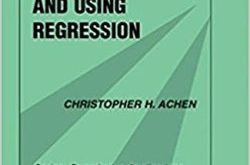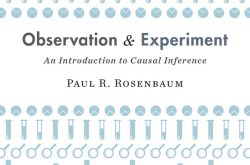DSGE models — false by construction Advances in mathematical tools and in economic theory rapidly changed the landscape. From the perspective of macroeconomics, the streamlined DSGE models of the 1980s begot much richer models in the 1990s. One remarkably successful extension was the introduction of nominal and real rigidities, i.e., the conception that agents cannot immediately adjust to changes in the economic environment. In particular, many of the new...
Read More »The Lucas critique comes back with a vengeance in DSGE models
The Lucas critique comes back with a vengeance in DSGE models Both approaches to DSGE macroeconometrics (VAR and Bayesian) have evident vulnerabilities, which substantially derive from how parameters are handled in the technique. In brief, parameters from formally elegant models are calibrated in order to obtain simulated values that reproduce some stylized fact and/or some empirical data distribution, thus relating the underlying theoretical model and the...
Read More »Sometimes we do not know because we cannot know
Sometimes we do not know because we cannot know Some time ago, Bank of England’s Andrew G Haldane and Benjamin Nelson presented a paper with the title Tails of the unexpected. The main message of the paper was that we should not let us be fooled by randomness: The normal distribution provides a beguilingly simple description of the world. Outcomes lie symmetrically around the mean, with a probability that steadily decays. It is well-known that repeated...
Read More »Shortcomings of regression analysis
Shortcomings of regression analysis Distinguished social psychologist Richard E. Nisbett has a somewhat atypical aversion to multiple regression analysis. In his Intelligence and How to Get It (Norton 2011) he writes: Researchers often determine the individual’s contemporary IQ or IQ earlier in life, socioeconomic status of the family of origin, living circumstances when the individual was a child, number of siblings, whether the family had a library card,...
Read More »Keynes’ critique of econometrics — still valid after all these years
Keynes’ critique of econometrics — still valid after all these years To apply statistical and mathematical methods to the real-world economy, the econometrician has to make some quite strong assumptions. In a review of Tinbergen’s econometric work — published in The Economic Journal in 1939 — John Maynard Keynes gave a comprehensive critique of Tinbergen’s work, focusing on the limiting and unreal character of the assumptions that econometric analyses build...
Read More »How to interpret and use regression analysis
How to interpret and use regression analysis After having mastered all the technicalities of regression analysis and econometrics, students often feel as though they are the masters of the universe. I usually cool them down with a required reading of Christopher Achen’s modern classic — Interpreting and Using Regression. It usually gets them back on track again, and they understand that “no increase in methodological sophistication … alter the fundamental...
Read More »Keynes and econometrics
After the 1920s, the theoretical and methodological approach to economics deeply changed … A new generation of American and European economists developed Walras’ and Pareto’s mathematical economics. As a result of this trend, the Econometric Society was founded in 1930 … In the late 1930s, John Maynard Keynes and other economists objected to this recent “mathematizing” approach … At the core of Keynes’ concern laid the question of methodology. Maria Alejandra Madi Keynes’...
Read More »Non-ergodicity and the poverty of kitchen sink modeling
Non-ergodicity and the poverty of kitchen sink modeling [embedded content] When I present this argument … one or more scholars say, “But shouldn’t I control for everything I can in my regressions? If not, aren’t my coefficients biased due to excluded variables?” This argument is not as persuasive as it may seem initially. First of all, if what you are doing is misspecified already, then adding or excluding other variables has no tendency to make things...
Read More »Observation and experiment
Paul Rosenbaum’s latest book — Observation and experiment: an introduction to causal inference — is a well-written introduction to some of the most important and far-reaching ideas in modern statistics. With only a minimum of mathematics, the author manages to give a lively and interesting account of how statisticians try to use statistics to make causal inferences from observational studies and experiments. For non-graduate social science students with no or little...
Read More »Econometric disillusionment
Because I was there when the economics department of my university got an IBM 360, I was very much caught up in the excitement of combining powerful computers with economic research. Unfortunately, I lost interest in econometrics almost as soon as I understood how it was done. My thinking went through four stages: 1. Holy shit! Do you see what you can do with a computer’s help. 2. Learning computer modeling puts you in a small class where only other members of the caste can...
Read More » Heterodox
Heterodox









